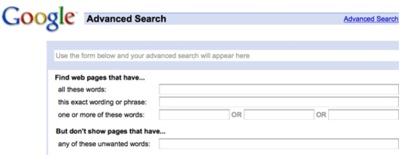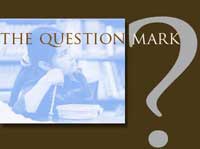| Research Cycle |
Order Jamie's books online with Paypal or a credit card
|
|
|
|
|

School Librarians
|
School librarians are facing horrible cutbacks across the nation!The situation is dire according to data reported in the APRIL 2018 issue of the Teacher Librarian, "Changing Times: School Librarian Staffing Status" by Debra E. Kachel and Keith Curry Lance:Recently released data show a loss of almost 9,200 full-time equivalent (FTE) school librarians (15%) nationwide from 2009-10 to 2015-16, with more than 10,000 total losses since 2000 (Lance, 2018). Although the losses somewhat abated from 2012-13 to 2013-14 and from 2013-14 to 2014-15, from 2014-15 to 2015-16, losses returned to earlier levels. These stark long-term losses should be a wake-up call for the profession. What is happening around the nation, and what is the impact on school library programs?Their article takes a close-up look at many districts across the nation which have eliminated or vastly curtailed the services of trained teacher-librarians. Sadly, as is often the case with education, students in disadvantaged and urban districts are often the ones to suffer the most from such reductions. School librarians -- what good are they?Note: Portions of this article first appeared in March of 2010, but many of the points made then are equallly valid today and it has been updated to reflect new developments.
This article begins by listing some of the challenges presented by the new landscape and then suggests why libraries and librarians are crucial.
Lack of Navigational Skill or Savvy
A surprisingly large percentage of folks are unaware of powerful strategies made possible by the advanced versions of search engines. 
Fascination with Gadgets and Fads Sadly, many schools have been diverted from serious work on inquiry, comprehension and thinking skills by a glittering parade of new technologies and fads that have little to do with rigor or powerful thought. In all too many cases, schools put the cart before the horse, thinking that laptops, whiteboards and social networking will produce smart students while short-changing the professional development that might translate those investments into actual student growth.
Sadly, many schools have been diverted from serious work on inquiry, comprehension and thinking skills by a glittering parade of new technologies and fads that have little to do with rigor or powerful thought. In all too many cases, schools put the cart before the horse, thinking that laptops, whiteboards and social networking will produce smart students while short-changing the professional development that might translate those investments into actual student growth.
Much of the current fascination with social networking and other gimmickry is diversionary. Rather than emphasizing rigorous learning activities, many are swept up in what amounts to edutainment.
Time for ActionAs noted above, the new information landscape presents schools, learners and the society with a number of challenges quite different from those of the previous century. While many technology companies and promoters claim to offer software and knowbots that render the teacher librarian obsolete, this is far from the truth. This article is intended to illustrate how teacher librarians can be crucial players during this time of change — augmenting their school role so that they are providing critically important leadership. I recommend the following steps:
Powerful Roles ---> Powerful ImpactThose school librarians who hold stubbornly to a 1950s definition of the job are likely to pass and be forgotten - extinct before their time. While many of the tasks that were important back then remain important in this decade, new challenges must be firmly placed at the core of any survival strategies. By embracing these new challenges and offering expertise not held by any other staff members, teacher librarians can make themselves indispensable.
1. Pro-D Because many schools pay woefully little attention to professional development, staff is often ill-equipped to handle the rapidly changing agendas of the Information Age with skill and assurance. Teacher librarians should step into that void and plan 3-4 courses each year for the school that will last from 10-24 hours and offer an appealing and useful menu of adult learning opportunities. Given the comprehension crisis in the USA, the teacher librarian should become the most skilled teacher of those skills in the building and pass them forward so that they will be practiced by all the teachers. Note the article "Power Reading and the School Library" first published in Library Media Connection at http://fno.org/sum05/ Because many schools pay woefully little attention to professional development, staff is often ill-equipped to handle the rapidly changing agendas of the Information Age with skill and assurance. Teacher librarians should step into that void and plan 3-4 courses each year for the school that will last from 10-24 hours and offer an appealing and useful menu of adult learning opportunities. Given the comprehension crisis in the USA, the teacher librarian should become the most skilled teacher of those skills in the building and pass them forward so that they will be practiced by all the teachers. Note the article "Power Reading and the School Library" first published in Library Media Connection at http://fno.org/sum05/powerread.html Each school should create a five year plan for adult learning with the teacher librarian taking a lead role in developing that plan. In addition to courses to strengthen the teaching of reading, there should be classes in powerful searching as well as classes that help teachers transform class research from trivial pursuit to questions of import. http://fno.org/feb01/pl.html The teacher delivers classes but also serves as an instructional designer and planner.
2. Curriculum-DevelopmentBecause the new landscape is disorganized, many teachers hold back and drag heels rather than suffer the chaos and the disappointments. Good lesson development is a fitting solution to this problem, but few schools provide the time and resources so that teachers and librarians can work together building lessons like those mentioned in the article, "Building Challenging Digital Lessons Quickly" at http://fno.org/Jan2010/quick.html Once teams are formed to create such lessons, the teacher librarian speeds their work along because the biggest challenge is finding quality resources - a specialty of a well trained librarian.
3. CoachWhen exploring difficult new terrain, growth in skill and practice is fueled by teaming, as the frustrations and anxiety attached to trying new activities are cushioned by the extra support provided by a partner. Bruce Joyce and Beverly Showers' research into adult learning documented the benefits of peer coaching — the increased "sticking power" of new techniques realized when teachers team with trusted colleagues. If a school agrees that students will be frequently challenged to wrestle with questions of import, the TL (teacher-librarian) can lead the way, but that possibility depends to some extent on the staffing levels in any school.Many TLs are heavily scheduled with classes in order to provide classroom teachers with planning periods. If teachers drop off students and leave, teaming is difficult, but many schools ask TLs to cover several schools or schedule so heavily that this kind of coaching is difficult.
4. Pilot, Navigator, Sage The TL is the most savvy person in the school regarding successful searching and must guide faculty and staff through the wilderness while equipping them with those skills that will ultimately make them capable of managing independently. Among other strategies, the TL creates school Web pages that serve to connect students and staff with the best current resources, whether they be print or digital in nature. The TL can help to organize the available information so that less wandering is required. The TL is the most savvy person in the school regarding successful searching and must guide faculty and staff through the wilderness while equipping them with those skills that will ultimately make them capable of managing independently. Among other strategies, the TL creates school Web pages that serve to connect students and staff with the best current resources, whether they be print or digital in nature. The TL can help to organize the available information so that less wandering is required.
5. InfotectIn many districts, the network interface is designed by IT people who may have never worked with children as teachers or be familiar with the curriculum. Both TLs and teachers should have a commanding role in developing menus, directories and shared drives so that they match the educational purposes of the school. A second grader or a sixth grader should be able to pull down the "FILE" menu and see choices that are developmentally appropriate. The teacher librarian acts as an infotect - designing the information structures to optimize their support of the learning.
6. Archivist, CuratorAs schools are pressured to go digital, the TL can help to balance that movement by collecting and displaying resources that appeal to all of the senses - historical artifacts, for example, that might be held in a student's hands and bring the realities of early settlement to life in ways a Web page cannot equal.
7. Weaver
Many schools suffer from a lack of communication and cohesion, but the TL can team with the principal and others to develop a sense of shared purpose. When teachers work in isolation from each other, the chance of success is reduced. The principal may ask all teachers to meet with the TL monthly so that their plans and activities are aligned. Teachers alert the TL to units that are coming up so the TL can identify resources and provide support. In addition to this kind of collaboration, the TL supports use of the electronic network so that teachers may share lessons and unit plans along with other resources across the building and the district. 8. Story TellerWhile teacher librarians have always been great at reading and sharing stories with students, they have a new charge — the sharing of an organizational story. Our stories can help shape who we are and where we are going. But in all too many cases, there is no shared, intended story to inspire a school. In many cases, stories are more like rumors than effective elements in a planned change initiative. Story creating and telling should be a basic tool of any group trying to build good new futures. Some call this activity scenario building. Others call it myth building. Still others call it visioning. For more on this challenge, note the article, "What is the Story here?"9. Magician These are exciting but difficult times for those who would lead schools forward. The work is challenging and the climate fraught with threats and pressures. The roles outlined in this article demand long days and a tough spirit. On the surface it would appear impossible to juggle all these tasks, so the TL must conjure up some magic.
Longstanding RolesIn addition to the many new roles confronting teacher librarians, the traditional roles remain important. In fact, a truly committed school would consider adding to current library staffing levels as a way of meeting the challenges directly.
10. InventorWe cannot afford to wait until the corporations, the bankers, the computer makers and the IT folks tell us what our future will be.
11. Reading Expert If the TL is the best teacher of reading in the school, she or he can plan an instrumental role in helping the school to reach performance levels on high stakes tests that will protect the school from outside pressures and allow teachers to spend time on something more than the basics. If the TL is the best teacher of reading in the school, she or he can plan an instrumental role in helping the school to reach performance levels on high stakes tests that will protect the school from outside pressures and allow teachers to spend time on something more than the basics.
Some of the best work being done on effective teaching of comprehension is being published by Stenhouse Publishing, with authors such as Stephanie Harvey and Debbie Miller. 12. Test ExpertDuring this decade, performance on tough tests will be a dominant reality for anyone working in schools. The TL makes him or herself indispensable by helping all staff know how to augment the performance of students on comprehension questions that require inference and synthesis.13. PoliticianAs a group, teacher librarians have been a bit too polite and reserved while their jobs and positions crumbled under the onslaught of school leaders intent on reducing force and programs. In many districts facing tough budget restrictions with the disappearance of stimulus funds, TLs and their programs are very much at risk. In many cases, administrators hand over the tough choices to staff members, forcing them into cannibalizing.As mentioned in the Kachel-Lance article quoted at the beginning of this article, "Changing Times: School Librarian Staffing Status," such action can restore and revive library staffing in districts like Portland, Oregon and Pittsburg, Pennsylvania. The Portland resurgence is outlined in this article from the School Library Journal - "Portland (OR) Public Schools to School Librarians: 'We Want You!'"
| |




 domains and other features. Many go straight to "simple" Google and fill the search box without much strategy. This approach often takes them straight to Wikipedia. If research is primarily topical, such searches may suffice, as the goal is mainly the collection of information, but research on
domains and other features. Many go straight to "simple" Google and fill the search box without much strategy. This approach often takes them straight to Wikipedia. If research is primarily topical, such searches may suffice, as the goal is mainly the collection of information, but research on 





 Educators must invent a future that is true to their beliefs. Teacher librarians stand in a powerful position to lead that inventive effort. This is a chance to make dreams come true rather than submitting to the darker visions of forces outside the school that often try to impose factory style learning methods at a time when they are not appropriate.
Educators must invent a future that is true to their beliefs. Teacher librarians stand in a powerful position to lead that inventive effort. This is a chance to make dreams come true rather than submitting to the darker visions of forces outside the school that often try to impose factory style learning methods at a time when they are not appropriate.